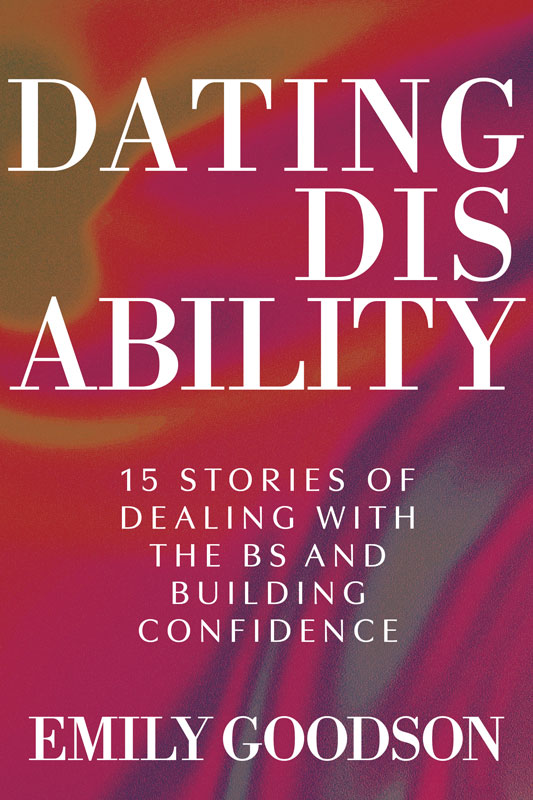
I lost my father when I was 15. A few months back, I had a conversation with grief counselor Natalie Greenberg, and she said something that resonated with me: “When you’re a young adult who loses a parent, friends don’t often respond in the way you hope because they lack a guide to navigate it.”
I recall feeling devastated when certain friends didn’t reach out, and how comforted I felt by others who embraced me with long, supportive hugs. Now that I have children, I want to teach them how to support friends who are grieving. Of course, I can draw from my own experiences, but I was interested in learning what had worked (or not worked) for others who lost parents at a young age. I chatted with three women, and here’s what they shared with me…
Carmel Breathnach, who lost her mother at the age of 11
“A few months post my mother’s passing, I visited my friend Susan’s house. We were watching TV and eating sandwiches with her younger sister, Audrey. I knew her family well and cared for them deeply. For some unexplainable reason, I expressed my overwhelming fear of becoming an orphan should anything happen to my devoted (and healthy) father. Without hesitation, Susan assured me that if anything occurred with my dad, her family would gladly adopt me. I was taken aback by her kindness and looked at her sister for confirmation. Little Audrey agreed enthusiastically. I then inquired about my brother: what would happen to him? Susan confirmed they would adopt my older brother too. This heartfelt response reassured me immensely, and although I still worried about my dad, I felt secure knowing my brother and I would have a safe place to go if anything unfortunate occurred.
“At that time, most of my friends were too young — eight, nine, ten — to talk to me about my mother’s death. In the years since, some have even apologized for not being there back then, but I reassured them they had supported me in their own innocent manner. They were sweet, and we played and laughed together. This meant a lot and was just what I needed.”
Erika Veurink, who lost her father at 15
“When my best friend learned my dad had cancer, she slipped a chocolate bar into my locker. She’d skip class with me to relax on the fire escape and chat. Her dad was among the first to hear about my dad’s diagnosis, and I observed their emotional exchange at a football game, puzzled as to why both were in tears. From the moment I received the news, it was a profound experience.
“I was with my best friend when I received the call about my dad’s passing. We were tying fleece blankets with her mom, watching Gilmore Girls in her living room. It felt good to have something to keep us occupied while we awaited the inevitable. After receiving the call from my mom at hospice, my friend and I squeezed into the backseat with the blankets we’d made for my family, crying, including one for my dad, which I placed over his body.
“That summer, we spent countless hours lounging on her lawn, walking to CVS, and watching even more Gilmore Girls. We felt like typical 15-year-olds, thanks to her mom, even amidst grief.
“During that period, I wanted my friends to treat everything as normal and to freak out with me at times. Getting lost in a gossip session in the locker room felt wonderful. Other times, I wanted to scream when I heard friends complain about their dads after mine had passed away. Mostly, I just wished to be around people constantly. I spent much time floating beside my friends at the pool, sometimes in silence. That proved comforting!”
Jannelle Sanchez (myself), who lost her father at 15
“Days before my dad’s funeral, my mom suggested inviting a friend, and the first person I thought of was my best friend since fifth grade. She was funny and knew me better than anyone. Additionally, she had faced the loss of a parent herself; her dad had a stroke and died when she was eight. She understood what it meant to lose a father.
“However, once my mom informed her mother of my dad’s death, I was met with silence. No texts. No calls. When my mom sat down on my bed, I sensed from her expression that she was about to share news I didn’t want to hear: S didn’t wish to attend the funeral. It felt like a punch to the gut.
“Now as an adult, I comprehend why S distanced herself. Coping with death is incredibly challenging, particularly for a child. While her lack of outreach made me feel alone and hurt, I now recognize her withdrawal was rooted in her own grief, not coldness or malice.
“To be fair, I didn’t reach out to her either. I never texted her saying, ‘I truly need you right now’ or asked if she was available for a call. In the midst of my grief, I didn’t know how to articulate my needs to my friends. All I craved was for one of them to come over, hang out with me in my room, and reassure me that everything would be alright. I longed for the physical presence of friends — to hold a hand so tightly that it became clammy. Or simply to sit beside them on a couch without discussing anything at all.
“Fortunately, some friends did reach out. However, the one that stood out the most was the least expected. The week after my dad’s passing, once my mom shared the news with everyone, I ascended the spiral staircase at our church, heading to our weekly youth group. With every step, my anxiety mounted. Will everyone now see me as the girl whose dad died? Will they act strangely around me? But upon reaching the top of the staircase, I heard a bright, ‘Jannelle-y!!!’ and spotted my friend Chloe rushing down the hall. She enveloped me in a warm hug and handed me a piece of paper. On it were two smiling stick figures adorned in triangle dresses with straw-like hair, holding hands. All I wanted during that time was for a friend to hold my hand, and there it was, beautifully depicted on paper.”
Natalie Greenberg, who lost her mother at 23
“Following my mother’s passing, my friends were unsure how to support me. They often said vague, open-ended remarks, like ‘Hey, how are you doing?’ or ‘I’m here if you need anything.’ Responding to those comments is challenging when you feel your life has flipped upside down.
“One gesture that held immense meaning occurred years after my mother’s passing. A friend saved the anniversary date of my mom’s death on her phone, and on that day, she sent me a heartfelt text and then invited me to go for ice cream that evening. Her effort to reach out and acknowledge my mother’s loss was so thoughtful. It also felt much more personal than giving flowers because it was an activity we could share, allowing us to talk and providing me with a distraction from the heaviness of that day. Saving a friend’s loved one’s death anniversary in your phone only takes a moment, yet it can mean the world to someone when you reach out on that day.
“Now as a mom, I want to teach my child to be empathetic when a friend is grieving and to check in regularly. Not just a single check-in, but consistently — weeks, months, and years later. Discussing the death of a parent is not a one-time conversation; that’s where stigma grows, making it a dark, intimidating topic. It will remain with someone for their lifetime. Continuously opening that line of communication and creating a space to discuss a friend’s grief will benefit everyone.”
Did you experience the loss of a loved one during your younger years? What actions or words brought you comfort?
P.S. How do you approach discussions about death with children, and what are your own thoughts regarding death?
Title: Supporting Children After the Loss of a Parent
Introduction
Experiencing the loss of a parent is a significant and transformative event for a child. It can evoke a multitude of emotions and challenges that necessitate compassionate and thoughtful support. Understanding how to assist children through this tough period is vital for their emotional and psychological health. This article delves into effective approaches and considerations for aiding children after losing a parent.
Understanding Grief in Children
Children process grief differently from adults. Their comprehension of death and emotional reactions differ based on age, developmental stage, and individual traits. Younger children may not grasp the finality of death completely, while older children and teens might contend with more complex feelings. Recognizing that grief is a personal experience, each child will navigate it in their unique way is essential.
Open and Honest Communication
A crucial part of aiding a grieving child is fostering open and honest communication. Encourage them to share their feelings and ask questions. Utilize age-appropriate terminology to clarify the situation and be sincere about what has transpired. Steer clear of euphemisms that may lead to confusion and reassure them that it is acceptable to feel sad, angry, or confused.
Providing Stability and Routine
In times of mourning, preserving a sense of stability and routine can be reassuring for children. Familiar daily activities and schedules provide a sense of normalcy and safety. While allowing space for grief is important, blending this with regular routines can help children feel more secure and less overwhelmed by the changes around them.
Encouraging Emotional Expression
Children require means to express their feelings. Motivate them to discuss emotions, draw, write, or engage in activities that facilitate the processing of their grief. Creative expression can serve as a powerful tool for children to convey what they may struggle to articulate verbally. Listening without judgment and recognizing their emotions is vital in helping them feel understood and supported.
Seeking Professional Support
At times, children may benefit from further assistance from mental health specialists, such as counselors or therapists, who focus on grief and loss. These experts can offer a safe environment for children to explore their feelings and establish coping mechanisms. Seeking help from professionals is particularly important if a child displays prolonged or severe distress signs, like withdrawal, behavior changes, or academic struggles.
Involving Support Networks
Family, friends, and community members can significantly aid a grieving child. Encourage children to spend time with trusted adults and peers who can provide comfort and companionship. Support networks can offer practical assistance, such as help with daily tasks, and emotional encouragement, like sharing memories of the deceased parent.
Creating Memorials and Rituals
Engaging children in the creation of memorials or participation in rituals can assist them in honoring and remembering their parent. This might encompass planting a tree, developing a memory box, or taking part in a memorial service. These endeavors can foster a sense of connection and allow children to celebrate their parent’s life while acknowledging their loss.
Conclusion
Supporting children following the loss of a parent necessitates patience, empathy, and understanding. By promoting open communication, providing stability, encouraging emotional expression, and seeking professional assistance when required, caregivers can aid children in navigating their grief journey. Ultimately, the objective is to establish a supportive environment where children feel safe expressing their emotions and finding healing at their own pace.




